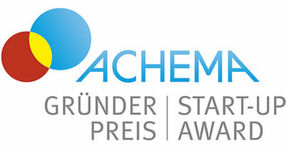Strong pipeline of monoclonal antibodies (mAbs) biosimilars in the US and Europe
The market is expected to soar from $1.2 billion of 2013 to $24 billion in 2019
Advertisement
The imminent entry of several companies, including big pharma, small biotech and generic participants, into the global biosimilars space will propel the market towards exponential growth. Already, Indian groups such as Dr. Reddy’s Laboratories, Biocon and Reliance Life Sciences are making a concerted effort to enter the European market. Although these companies have not yet penetrated the European market due to the stringent regulatory pathway, new product launches are expected in the mid-term.
Biosimilar markets in countries such as the U.S. and Japan are also expected to grow exponentially with more clarity on the regulatory pathway.
New research from Frost & Sullivan’s Analysis of the Global Biosimilars Market finds the market earned revenue of about $1.2 billion in 2013 and estimates this to reach approximately $24 billion in 2019. Untapped U.S. markets with a strong biosimilars pipeline as well as markets in Asia-Pacific and Latin America with a low cost of manufacturing will afford key growth opportunities.
“On one hand, the market is powering ahead regarding the strength of participants’ global expansion strategies, and, on the other, it is still beset by traditional patent-infringement issues,” said Frost & Sullivan Healthcare Senior Research Analyst K. Srinivas Sashidhar. “Moreover, the strategies adopted by innovator companies need to be taken into account. For instance, Johnson & Johnson has extended the European patent life of its innovator drug Remicade until February 2015, thereby delaying the launch of Hospira’s biosimilar monoclonal antibody (mAb) Inflectra and Celltrion’s biosimilar mAb Remsima.”
To further reduce the time to market, companies should also explore opportunities in mergers and acquisitions and alliances with companies having expertise in biosimilars manufacturing and development like Teva’s alliance with Cephalon and Lupin Pharmaceuticals’ alliance with Neuclone.
“In addition to mAbs, follitropins, interferons and low molecular weight heparins are likely to emerge in the long run,” added Sashidhar. “However, some companies may focus on specific therapeutic classes depending on their capabilities and strategic fit.”
Other news from the department business & finance
Most read news
More news from our other portals
See the theme worlds for related content
Topic world Antibodies
Antibodies are specialized molecules of our immune system that can specifically recognize and neutralize pathogens or foreign substances. Antibody research in biotech and pharma has recognized this natural defense potential and is working intensively to make it therapeutically useful. From monoclonal antibodies used against cancer or autoimmune diseases to antibody-drug conjugates that specifically transport drugs to disease cells - the possibilities are enormous

Topic world Antibodies
Antibodies are specialized molecules of our immune system that can specifically recognize and neutralize pathogens or foreign substances. Antibody research in biotech and pharma has recognized this natural defense potential and is working intensively to make it therapeutically useful. From monoclonal antibodies used against cancer or autoimmune diseases to antibody-drug conjugates that specifically transport drugs to disease cells - the possibilities are enormous























































